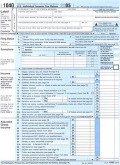How to Remove a Tax Lien?
Remove a Tax Lien
How to Remove a Tax Lien
No one really likes discussing the idea of taxes – probably because no one really enjoys paying them. Taxes are an important topic, though, because not paying them can quickly land a person in trouble. That’s why subjects like tax liens are something every taxpayer should know. This article will talk about tax liens in general, and will give you information you need to know about tax liens as they apply to you – most importantly, how to remove a tax lien from your property.
Tax Liens

Save Your Pennies

HHow to Remove a Tax Lien: What is a Tax Lien?
A tax lien is basically a claim the IRS places on one’s property for failure to pay taxes. In other words, it is when the IRS claims possession of your property because you owe them taxes. If you do not pay the taxes, then the property remains under control of the IRS, which may then sell it as it sees fit to recover money to make up for the missing taxes.
It isn’t just income taxes that liens can be used for, either. If you own a home or other piece of real property (like commercial property), you probably will owe taxes on it on an annual basis. Property taxes like these are subject to liens if they are not paid on time and in full. If that is the case, then a lien can be placed on the property.
Take Care of Business

How to Remove a Tax Lien: Your Options
Obviously, the best way to remove a tax lien is to pay it! But first, you have to know that a tax lien “runs with the land”. In other words, if a tax lien is placed on a piece of property, like a house, it stays with the property, no matter who owns it. So, if you buy a house or piece of property, you need to be aware of any tax lien that may become your responsibility upon your purchase.
One way tax liens are placed on properties is through assessments. When an assessment is made on a piece of property, it is essentially estimating the value on the property. Sometimes, when a property is assessed its value is raised. That comes with higher taxes.
If you have a lien placed on your property based on this assessment, you can argue that the assessment artificially or unfairly inflated the value of your property – which means you wouldn’t owe the additional taxes. If you prove your case, your tax lien will be removed.
Another option is time. Any tax lien placed after November, 1990 expires after 10 years, due to a “lapse in time”. So, if a tax lien exists for more than 10 years, it is no longer enforceable by the law. Of course, it often isn’t a good option to try and avoid a lien by not paying it for 10 years. Chances are, the IRS will get the owe money before the expiration date!
As with any tax issue, there is legal help available. A tax lawyer can help you negotiate with the IRS regarding a tax lien if you are unable to pay it. The IRS prefers to recoup as much money as possible, even if it is less than the original amount. Often all you have to do is bring up the subject with your lawyer and demonstrate to the IRS that you cannot pay the full amount to receive relief from the tax lein.
My Tax Hubs
- How to Settle IRS Tax Debt
How to Settle IRS Tax Debt Are you in trouble with the Internal Revenue Service (IRS)? I hope not. But, the truth of the matter is that every year, thousands of Americans find themselves in...









